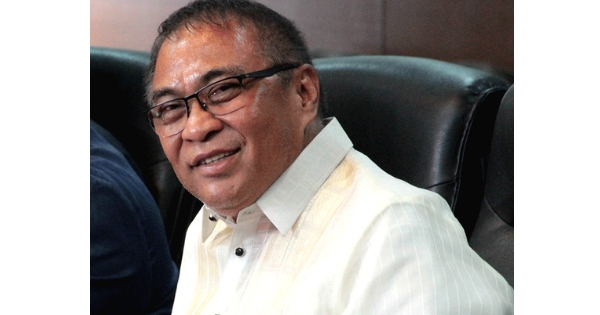ANGELES CITY – “We are falling into a debt trap.”
This was the warning aired by Kambilan mayoralty candidate Alexander S. Cauguiran as the city’s debt payment climbs to a new high of P233 million.
“This is taking a heavy toll on the city’s social services as it irreversibly falls into a disastrous debt trap for 15 years,” he pointed out.
Explained Cauguiran: “The city government’s total outstanding debt has ballooned to P1.6 billion, the largest in the city’s history, and its yearly debt payment will increase from P179 million in 2018 to P233 million this year as the installment for the P1.22 billion loan from the Development Bank for the Philippines (DBP) starts to kick in.”
However, Mayor Edgardo Pamintuan said the P233 million is for all loans including those for the city college of Angeles and the four-storey annex building at the Ospital Ning Angeles (ONA) as well as the very old ESF loans “which we need to appropriate but do not have to be paid since we have already applied for condonation.”
“This massive borrowing exacts a heavy toll on the city’s basic social services,” he stressed.
“Take the case of the Ospital Ning Angeles (ONA). Its 2019 budget for drugs and medicines amounts to only P4 million and P11 million for medical, dental and laboratory supplies and equipment. This was approximately the same amount appropriated for the same items last year, while the city paid P179 million to service its loan,” he noted.
“No wonder most ordinary city residents are complaining of the dire lack of medicines and medical supplies at the city-owned hospital,” he lamented. “Indeed, how can one reconcile that city spending P233 million for debt service while providing a measly P15 million for ONA’s medicines and medical supplies?”
Over a period of only two years and four months, Cauguiran noted, from April 1, 2016 to June 13, 2018, the city government has borrowed a total of P1.5 billion, consisting of P31 million for purchase of motor vehicles, P249 million for infrastructure projects, P183 million for purchase of equipment and motor vehicles; and P1.043 billion for infrastructure projects consisting of a sports complex, a new city hall, and a multi-level steel parking.
P1.6-B debt
“If you add the recent borrowings and the loans of the previous years and deduct the payments thus far made, the city’s total debt in 2019 shall stand at P1.6 billion, 75 percent of which could be attributed to the latest two term loans from the DBP in the amount of P1.22 billion,” he said. Caugurian also observed that the city’s 2018 budget is indicative of how the city’s debt has drastically reduced its fund for maintenance and other operating expenses (MOOE).
“After expenditures for debt service, 20 percent development fund, calamity fund and other special purpose funds, and personnel services, the city was left with only P371 million for MOOE,” he said.
“This amount is expected to precariously dip to a little more than P300 million this year. As the reduction of MOOE which funds the operational and maintenance expenses of all the city government’s departments and offices, and for the payment of wages of job order personnel, this would inevitably result in the deterioration of the delivery of basic services,” Cauguiran explained.
“I’m not sure if Vice Mayor Bryan Nepomuceno is fully aware of this precarious fi nancial problem. The council is vested with the authority to approve the city government’s expenditures and as head and presiding officer of that body, he is mainly responsible to ensure an equitable distribution of resources, particularly for basic services like health and education. To spend P1 billion for a sports complex, a new city hall, and multi-level street parking in one fell swoop of borrowed money is most inconsiderate to the needs of ordinary residents that comprise about 80 percent of our population” he said.
Cauguiran lamented that both Nepomuceno and Councilor Carmelo “Pogi” Lazatin, who are both aspiring for the city’s mayoralty post, have fully consented to the P1.22 billion loan from DBP without due regard to the financial bind of the city government that goes beyond the three-term limits for elected officials.
“I have always said there should be a paradigm shift in local governance, from one that merely collects, borrows, and spends public money year-in and year-out. Deftly managing financial resources is pre-requisite of good governance,” Cauguiran said.





